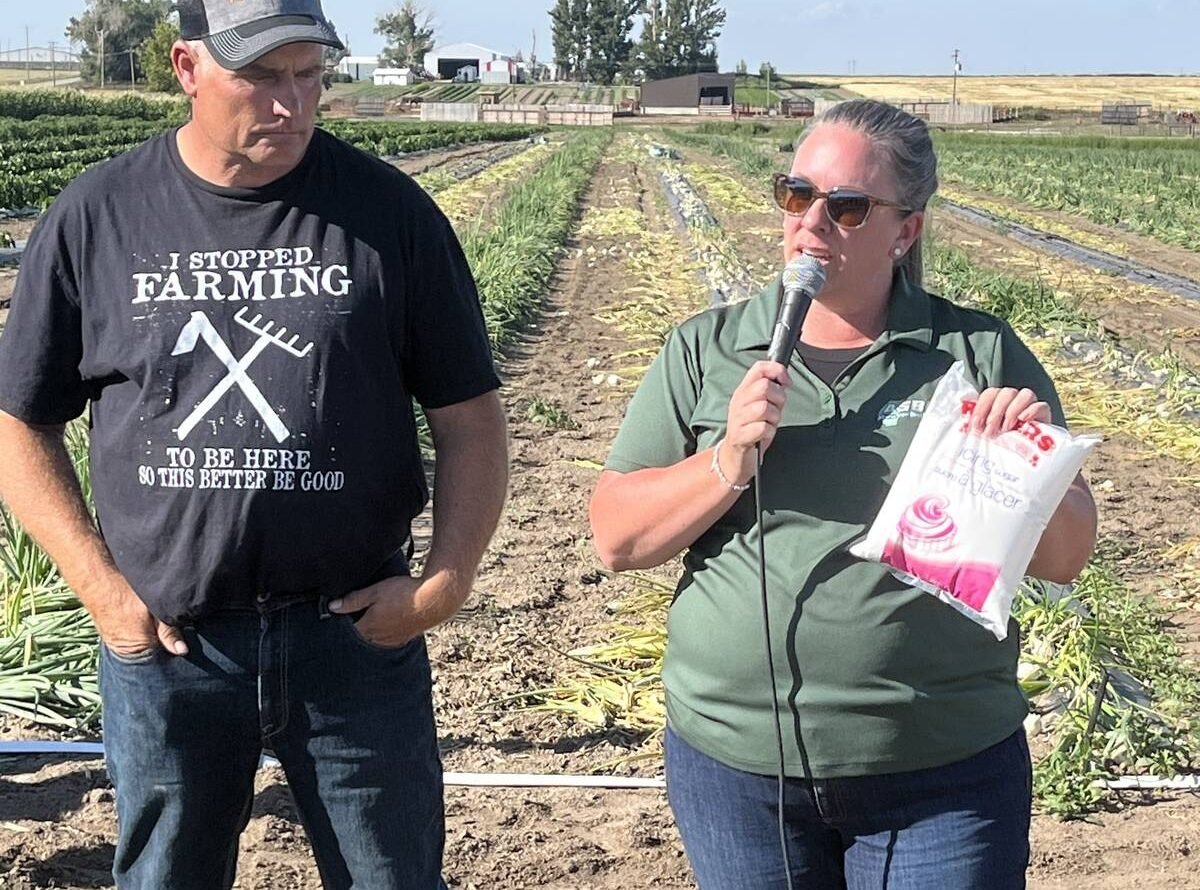Healthy grain, healthy products | Omega 3 enriched flax and canola
CHICAGO, Illinois — Healthy profits from healthy food ingredients are driving the latest move by biotechnology and food companies to produce new crops.
BASF and Cargill have added omega 3 fatty acids to their stables of crop products.
“We’re excited to be working towards offering farmers another crop (product),” said Scott Kay, business director for BASF in Canada.
Kay said the partnership with Cargill means the German-based chemical and biotech giant, BASF, will be partnered with the largest food and agricultural products company on the planet.
Read Also

Alberta’s beets a sweet domestic segment in Canada’s sugar supply
The sugar beet industry is showcased during a Farm to Table tour, as Taber features the last remaining sugar beet processing plant in all of Canada.
Chris Mallett heads research and development at Cargill.
“The market for healthy food products continues to grow rapidly and globally. The demand for sustainable sources of products such as oils that can reduce mortality from cardiovascular disease is significant and important to a healthy society,” said Mallett at a recent BASF meeting in Chicago.
Peter Eckes, BASF president of plant sciences, said canola is a big focus for the company in terms of plant biotechnology.
“We are working with Monsanto on yield and with Cargill to create a new product that will provide the food industry a sustainable sources of omega 3 (oils) and (farmers) a premium crop for their business(es),” he said.
Eckes said the American Food and Drug Administration has approved the health claim that EPA/DHA omega 3 fatty acids reduce the risk of cardiovascular disease. Food processors can therefore make that label claim on food packaging.
“Foods like these have the potential to save millions of lives,” he said.
The World Health Organization says 16 million people die each year from largely preventable cardiovascular disease.
WHO recommends people have a 500 milligram daily intake of DHA/EPA omega 3 oils, but says the actual consumption is well below 200 mg.
The omega 3 industry association, GOED, says the healthy oils in the form of dietary supplements market passed $1 billion annually in 2010 and continues to grow at about 12 percent.
Cargill’s Mallett said the market needs products that can deliver plant based versions of the natural source that comes from fish oils.
Cargill does produce a flax omega 3 enriched canola oil and shortening.
However, for the farmer, a high yielding, biotic and abiotic stress tolerant canola crop that can be grown successfully in all northern North American regions should be quite appealing, says Nevin McDougall, head of crop protection for BASF in North America.
Bruce Holub of the University of Guelph says despite a few grams of A linolenic acid omega 3 being consumed by many North Americans every day, the plant sources for that, including flax which is high in ALA, do not contain the DHA/EPA that are critical building blocks for brain and eye health.
Eckes said the process of identifying the genes that can express the EPA/DHA products in canola plants has been successful and the company is focusing efforts on the most promising gene combinations that produce sustainable and commercially viable levels of the acids.
“We intend to be in the marketplace with this by the end of the decade,” said Eckes.
Cargill and BASF aren’t alone in their thinking.
Dow’s Nexera canola is an omega 9 containing oil, while that company has taken Martek Biosciences as a development partner for plant based DHA. Monsanto is working with Solae, which is a DuPont and Bunge owned company.
Last year, the Australian government’s science research arm created a public-private partnership to develop a new canola with omega 3 DHA and EPA content.
Iowa’s Green Plains Renewable Energy is also interested in producing omega 3 acids from algae.














